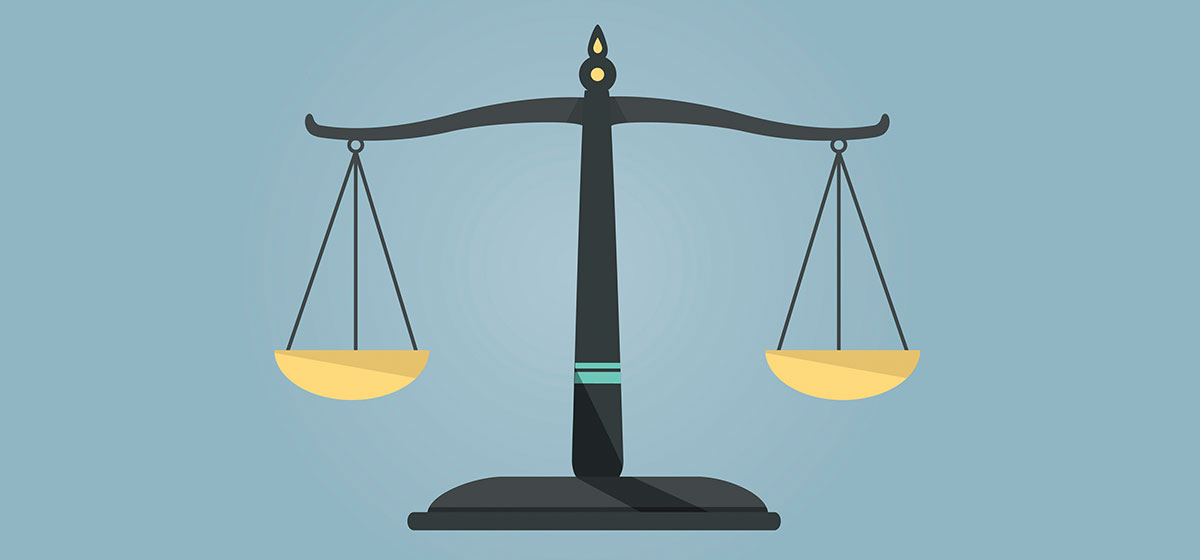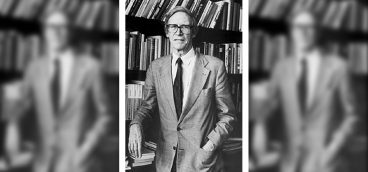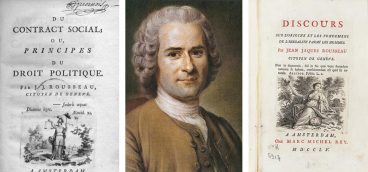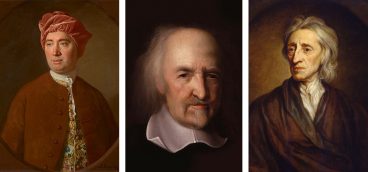The Stumbling March of Reason

“When the theological content of the idea [of human rights] was abandoned, nothing was put in its place.” —James Griffin, “On Human Rights”
Earlier in this series of posts we revisited the Age of Enlightenment, examining the back story of the ideas that led to the creation of liberal democracy. That’s also a good place to start to examine the ideas that are undermining liberal democracy today.
Some of those ideas have already been discussed. For example, Rousseau’s conviction that all forms of government were illegitimate and should be pulled down. That idea was diverted to the trash bin of history by the examples of the Reign of Terror in France and Russian Revolution and its aftermath.
What Rousseau had in mind, as we discussed earlier, was the notion that people had been so corrupted through the process of living under governments that they couldn’t be trusted to govern themselves. Instead, people had to be improved—the New Man had to be created—before societies could risk government-by-the-people.
Thus, during the French Revolution the radical leftists who controlled the Committee for Public Safety believed, following Rousseau, that the French people couldn’t be trusted to carry out the goals of the Revolution.
It wasn’t until the Thermidorian Reaction—public revulsion against the excesses of the Terror—that Robespierre was ousted and the Rousseauian radicals were suppressed, including the Montagnards, the sans-culottes, and the Jacobin Club.
The Russians were much slower on the uptake. The Russian Revolution occurred in 1917, but 70 years later the Russian people were still not sufficiently enlightened to be able to govern themselves. Instead, the dictatorship of the proletariat continued right up until the USSR collapsed—partly for that reason.
Behind Rousseau’s ideas, and those of Marx and others, was impatience with process and demand for results. This attitude was well-intentioned; most governments, then as now, were very slow at improving the lives of many of their citizens.
However, the horrific outcome of this means-justifies-the-ends approach ultimately resulted in near-universal abandonment of Rousseauian ideas by civilized societies. That is, until recently.
But before we get to that issue, let’s remind ourselves that, aside from establishing the principles of liberal democracy, the Age of Enlightenment was mainly celebrated as the period when human reason began to be favored over religion and superstition. More precisely, reason was again favored, since it was only during the Dark Ages in the West that reason had taken a back seat.
As the decades and centuries rolled by, the role of religion and superstition continued to decline in the West. Nonetheless, even as religion’s active role in Western societies declined, and even as fewer and fewer citizens considered themselves to be practicing Christians or Jews, the moral teachings of Judeo-Christianity continued to animate law and custom.
In the twentieth century, however, horror upon horror unfolded: World War I, World War II, the Holocaust. In the face of these events, Judeo-Christian morality could be viewed as falling somewhere between pathetically inadequate and an actual contributor to the monstrosities that had befallen humankind.
Many people in the West lost their faith, especially in Europe, and also lost faith in the institutions and beliefs that had guided mankind for centuries. One manifestation of this fundamental change was that the United Nations scrapped Biblical and Torah teachings and demanded radical equality as the only hope for the future of the race.
For a brief instant in time—namely, the 1950s—the UN seemed to be a voice crying in the wilderness. Most of the world was in a shambles, and the United States was busy enjoying its astonishing post-war prosperity.
But the 1950s proved to be a false dawn of normalcy, because in the 1960s, everything changed. To many people these changes seemed to come out of nowhere. In fact, they were in reality the continuation of the Roussaeauian strain of thought that began during the Age of Enlightenment.
The radical developments of the 1960s, though frightening to many, were for the most part quite positive: the landmark civil rights legislation, the birth control pill that gave women control over childbirth and which propelled a remarkable change in women’s roles, attempts to expand equality to smaller and smaller marginalized groups.
But lurking inside all these positives was a growing danger: the resurrection of formerly discredited Roussouian ideologies. Let’s consider two examples.
First, it is an inevitable phenomenon of equality (as with freedom) that the more of it you have, the more of it you want. In societies that are extremely unequal, with many marginalized groups, any incremental progress is welcomed.
The new United States of America was such a society: most blacks were enslaved, women couldn’t vote, and most men couldn’t vote, either, because they didn’t own property. (All white men were given the vote in 1856.)
But as societies become more and more equal, the fact that anyone is treated unequally seems repugnant. Even relatively minor indicia that someone is being treated unequally suddenly become very big deals, even though they would have seemed laughable to more seriously disadvantaged groups.
Understandable as all this might be, it contains alarming echoes of the Rousseauian/Marxist impatience with incremental progress, and, beyond that, to the conviction that even liberal democracies aren’t legitimate forms of government.
Second, the incredibly rapid cultural change that has swept over Western societies—and especially the United States—since the 1960s has affected different citizens in very different ways. To the proponents of these changes, the progress is gratifying and energizing; to others the rapid change is frightening and unwelcome.
I’ve pointed out elsewhere in these pages (e.g., here) that between the wars many European countries attempted to implement well-meaning but too-rapid change, resulting in the destruction of those governments and their replacement by more authoritarian leaders (e.g., Germany, Italy, Spain, Portugal). We are witnessing a similar phenomenon today in Eastern Europe.
The demand for ever-more-rapid change and the pushback against it contain echoes of another Rousseauian idea: that most people are unready or even unworthy of governing themselves. Depending on your point of view, citizens of Western liberal democracies are either hopeless bigots or clueless elites, and in any case unready for self-government.
Into this toxic stew strode a man whose own life and values replicated the cultural direction of the post-World War II West, and whose political philosophy tried to offer an alternative to both incremental progress and Rousseauian radicalism. We’ll look into John Rawls next week.







